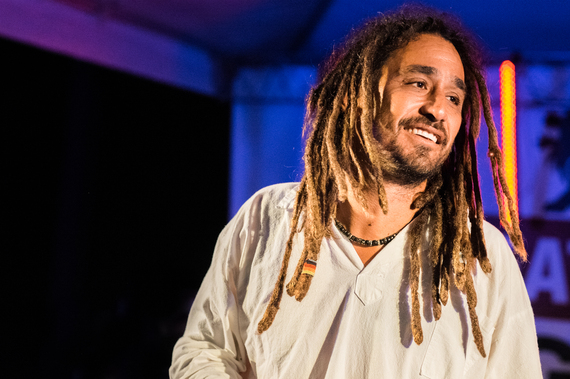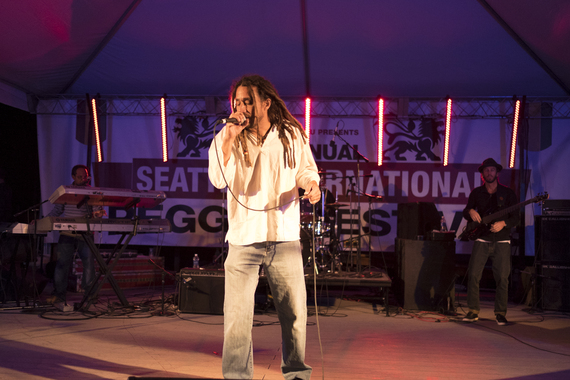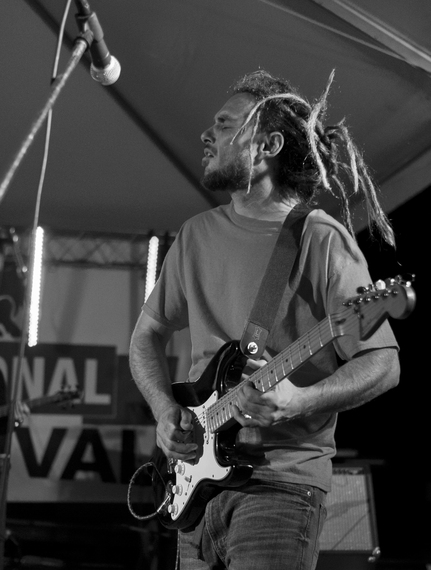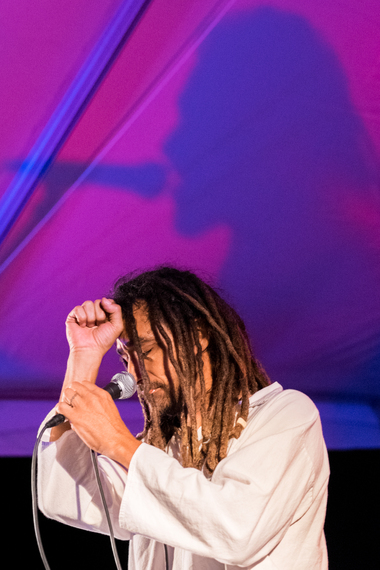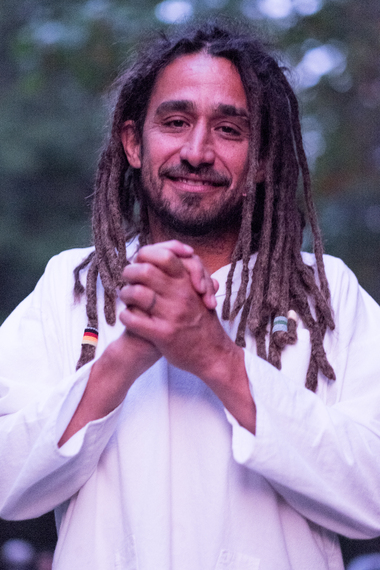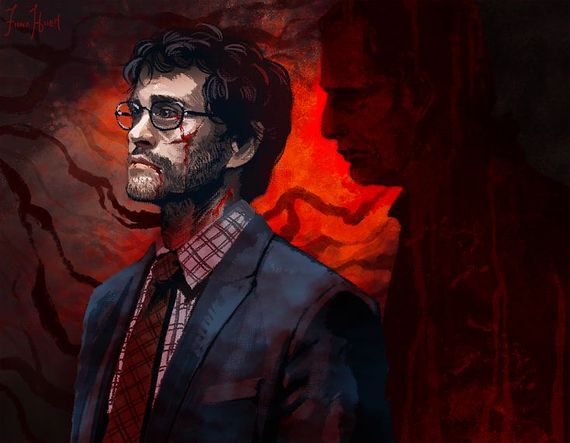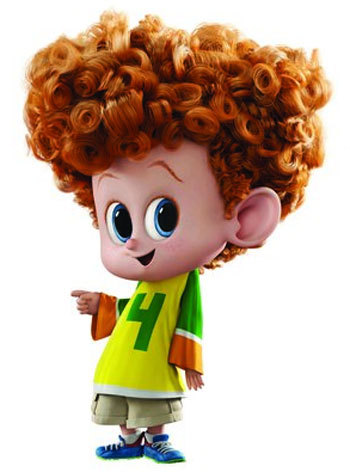
A Conversation with Pat Metheny
Mike Ragogna: Pat, the last time we spoke, you were very excited about your project, Kin, the second album highlighting your Unity concept. Now there's a related DVD/Blu-ray, The Unity Sessions, documenting the live side of your ensemble. Does the improvisational element and different kind of energy brought to these live performances by you and the other musicians make your original recordings more like sketches of your songs than the versions fleshed-out further over the course of many concerts?
Pat Metheny: If we had stopped at the point of recording the music in the studio and never played any live gigs afterwards, that would have been fine. Hopefully, the records stand up well on their own. The original recordings have a quality about them that makes them unique and valuable and also very different from whatever any subsequent live versions might offer just by the nature of what makes a recording studio different from a live setting. I guess I would say that a studio recording isn't necessarily better or worse than anything that could happen live, it is just different.
That said, we had the incredible opportunity to perform 150 concerts around the world upon the release of the second record. And the band continued to get better and better along the way. I think we all really grew as individuals and as a group from the intense experience of having to address this music night after night. The music seemed to gather a kind of strength and beauty in the details that gave it yet another kind of quality as we went.
MR: Since there is a strong improv aspect to these live recordings, how does the onstage creative process work that respects musical road signs yet experiments beyond the recorded arrangements?
PM: I think there is a kind mythology that surrounds improvisation in this general area of music that gives it a kind exalted status when in fact, the challenge of it might be described as something that is actually much closer to what might happen if you took a bunch of great friends out to dinner for 150 nights in a row. After a while, you would become very familiar with each others stories, vocabularies, tendencies and everything else, and it probably wouldn't be that much fun in pretty short order.
But imagine if you were able to organize a bunch of excellent and very skilled story tellers, authors and griots, and you all made a pledge that the goal was to make up new variations on very particular existing stories each night, you might be onto something closer to what it is like for us.
Then say you got those guys to get together at the end of their long journey together to talk about what they learned along the way with each other in the dialect of music but using the materials and stories accumulated on their trip, that might be what The Unity Sessions DVD is like.
MR: Are there certain songs that have changed drastically from their original structures, maybe verging on being whole new songs?
PM: In each project, a certain culture emerges to support what the goals of the bandleader happen to be at a particular time, who, in this case, happens to be me. I have had lots of different bands over the years, and each one brings a certain set of possibilities that are unique to that particular group of people at that particular juncture of where the culture of the time, the compositions that I have written for those particular individuals, the general sound possibilities and the improvisational skills of the players intersect. In some cases, the options might include totally free, 100% improvised material each night, but in other cases it might be dozens and dozens of pages of written material.
PM: For me, there has never been any reason I have been able to think of why these destinations and all points in between need to be mutually exclusive.
PM: The music that we developed over the course of the two records really rewarded an open approach to what was possible and I think the DVD shows that range well.
MR: After playing for so many years and hundreds of shows, by this point, what does playing live fulfill for you?
PM: Honestly, it is hard for me to answer that. Playing isn't even playing for me much of the time. I am just sort of in it. Mostly, I feel like I am just standing there listening. I just really like being there.
MR: Are there any moments on The Unity Sessions that you're amazed by, you know, in a modest way, of course?
PM: Over the course of the year, we played around 150 plus concerts around the world. And for the Unity Band tour that proceeded it, we had done another 100 or so. And I can say that I have never been around a group of individual musicians who showed up to really play with such utter commitment and devotion to music making night after night as Chris [Potter], Antonio [Sánchez] and Ben [Williams]. That in itself was amazing to me. And I think you can really get that spirit and feeling in pretty much every note of the DVD.
MR: Do you have a personal favorite from ...Sessions?
PM: As much as I am very enthusiastic about the project, the truth is that if there were a way I could be a musician and be invisible, that would be my preference. I never have felt the music was about "me", I always have felt like it was about "it". But, I do realize that there are some folks who really do want to see what it is and how it all comes together on a visual level.
We filmed a very long day to get all this music done. At the end, at about 2 in the morning, I played a whole bunch of themes and compositions that I had composed for various other projects over the years all mixed together, just playing solo guitar. I had done this a number of times before, but I think because it was at the end of such a long tour, there is something special that was captured there.
MR: How much was left on the cutting room floor?
PM: We used pretty much everything we filmed.
MR: Does archiving a live performance affect its execution in any way?
PM: I think it does. As an improvising musician, like everyone else in this general area of music, I have had to wrestle with that issue in the area of making, hopefully, definitive statements about my current musical interests in recording studios in the form of records or CDs for years. You want to be there taking chances, since that is a deep part of what the job description is, but on the other hand, it will remain as a permanent document of that period of your musical output for a very long time to come. There is a certain amount of self editing that then ends up happening when that red light comes on, or not, depending on dozens of variables in the music, the musicians, the producer, the day and on and on.
Filming the process is different again. Like I was saying, if there were a way to do what I do and have no one ever see me, that would be my choice. I don't feel like music has much to do with who I am as a personal presence. It is all about what it sounds like and what it can offer on a soul level as sound. So, for me, being there as someone you see holding a guitar onscreen is something that I acknowledge as being an element in it all that might hold some interest for potential viewers, but a minor part in the final sum of what is actually going on.
However, we live in an increasingly visual world. Documenting a band like this seemed like not just a worthwhile thing to do, but something that I didn't want to miss. We had gotten to such a refined point as an ensemble that I really wanted to share what that became in the most complete way possible and I am really happy we have a document of it all. Also, our producer and editor Steve Rodby did an incredible with this project. It ends up being one of the best films of a band like this in action that I have seen. It is really like you are inside the Group with us.
MR: This is a little random but are you conscious that you might be innovating as you perform or record?
PM: I think anything like that can only exist as a by-product of what you get to honestly and organically. I don't think I have ever seen any kind of musical innovation that happens at a high level just for its own sake. It seems that the quality you are talking about tends to comes out of someone who is looking for something that answers a very personal question of themselves at some level.
MR: Is there any conscious aspect to your creativity or is it all a somewhat unconscious flow? How does your Unity Band support or add to that?
PM: I think that creativity is a natural state, but I also think that you can do quite a bit to evolve your insights into what you hope to achieve by asking hard questions of yourself and the people around you. It is never easy to do something well, and yet the process that you have to undertake to expand your ideas and your skills can not only be really rewarding, it can be a lot of fun too. And from that feeling of progress that usually follows hard work comes a kind of satisfaction that begins to feed on itself, which seems to be the kind of flow thing that you mentioned.
One aspect of this general area of music is that the requirements to "hang" with players at this level are quite high. For all the angst that comes with the politics of attempting to genre-define music, I personally see the goal as finding a way of looking at music as a singular thing devoid of any stylistic boundaries. This band was an excellent manifestation of that.
MR: What is your current definition of jazz and what is your relationship with it these days?
PM: I really just try to honestly represent in sound the things I love about music without really worrying too much about what anyone calls it. It seems like people are always coming up with new names and trying to put up new border fences at every opportunity. Just in the time that I have been around I have seen more than a few really goofy names like "fusion" come and go and the best you can say about any of them is that they are superfluous. The way that this general community functions within the realm of human creativity is a symptom of a way of being that I think reaches far back into our history as a species.
As I kind of just mentioned, I have never been a huge supporter of the whole idea of "genre" or styles of music kind of to start with. To me, music is one big universal thing. The musicians who I have admired the most are the ones who have a deep reservoir of knowledge and insight not just about music, but about life in general and have the ability to illuminate the things that they love in their music. When it is a musician who can do that on the fly, at will, as an improviser, that is usually my favorite kind of player to share the bandstand with. I feel like I am a musician in this broad sense first. And all the subsets and sub-categories of the way music often gets talked about in terms of the words people use to describe music is basically just a cultural/political discussion that I have found over the years that I am really not that interested in in the same way I am interested in the spirit and sound of music itself.
As far as sound goes, I always try to let the music at hand decide what direction I go in in terms of orchestration. I am pretty happy to play in a really dense way, or a really sparse way, or really loud or really soft or all over the dynamic range, really inside the chords or outside the chords...it kind of doesn't matter too much for me--it is whatever seems to sound best for what is happening at that particular moment.
MR: Are you a fan of any innovations or new artists?
PM: I really make a point to listen to all the new guys that I hear about as they hit the scene here in NYC. I am always on the lookout for new ideas and what people are doing. There are a bunch of musicians who I have my eye on, but the standards that I use for myself in terms of originality and musicianship that were so honored by the generation of musicians just above me chronologically--Keith Jarrett, Jack DeJohnette, Gary Burton, Steve Swallow, Herbie Hancock and so many others. That remains the standard. That is the same standard that we all have to aspire to--not just to play well, but to bring something special and personal to the music.
MR: What advice do you have for new artists?
PM: I kind of always say the same thing, but it is really the best thing I can offer to someone because it has worked so well for me. Try to be around people who know a lot more than you do as much as possible. And that probably is true in all areas of life, not just music.
MR: Can you picture pushing boundaries further with your instrument and if so, what might that sound like?
PM: I have so many ideas. There are so many things still to explore and expand on. Some nights I can't even go to sleep because I have so many ideas about music and what could be possible. Every now and then I run into younger players who say, "It seems like it has all been done already," and I find myself going, "What the heck are you talking about?" There is still so much to do, so many stones unturned.
MR: Are you aware of your contributions to music, your legacy and perhaps what you'd like to add to it?
PM: I just try to do my best. I try not to think too much about stuff like that.
MR: What other instrument do you secretly wish you could play with the same mastery as you have with guitar?
PM: To me, music exists before and after any particular instrument. The guitar has a special place for me because I have spent so much time with it, but even with very limited abilities, I kind of try to get to the same ideas on any instrument.
MR: Favorite animal?
PM: People.
******************************
KIM EDWARDS' "WORDS" EXCLUSIVE

photo credit: Allison Harp, FWIW
According to Kim Edwards...
"'Words' came about very quickly -- I wrote it in less than a day, which is not the norm for me at all. But at the time, I was getting over the demise of a long-term friendship/relationship. I was never quite sure which it was, which is why it ended, and even though I was the one who had called it off, there was still a lot of heartache and grief on my end. All those emotions remained pretty fresh for a long time, and so when it came to sitting down and writing, the lyrics and music ended up spilling out very naturally. 'Words' is filled with a lot of raw emotion, but it also articulates a lot of the ache that I felt that I didn't otherwise know how to express -- namely, it's not about blaming or pointing fingers at what went wrong, but coming to grips with the way things are."
And here's all that social media stuff you kids like...
http://www.kimedwardsmusic.com/
http://www.facebook.com/kedwardsmusic
https://twitter.com/kimedwardsmusic
https://www.youtube.com/user/kimedwardsmusic
******************************

A Conversation with John Pizzarelli
Mike Ragogna: John your new album is titled Midnight McCartney. You seem to be a repeat offender with recording Beatles-related music!
John Pizzarelli: Right. This one was totally by surprise. The first one was an idea we dreamed up back at RCA. We didn't have any letter from Paul McCartney saying, "Make a Beatle record," but this one was out of the clear blue.
MR: So McCartney was involved? What that story?
JP: I literally thought that FedEx was dropping off maybe a picture from the session that we did or something. I had no reason to believe anything was coming. But there was a letter in there that kind of mentioned, "Well, maybe it's an idea that you could do this record, post-Beatle songs and some of the later things and call it Midnight McCartney," and I was like, "You're kidding, right?" It's much easier when you get the idea right from the guy.
MR: And the guys at your label certainly have an interest in that since they're reissuing expanded CDs of his catalog.
JP: I think a week after my record comes out, they're releasing Pipes Of Peace and Tug Of War.
MR: Truth be told, Tug Of War is my favorite McCartney album, then Band On The Run and Ram.
JP: Yeah, that's a great record.
MR: Let's talk about that for a second. How does McCartney and his music resonate with you?
JP: It's just that extension of The Beatles thing. I was just constantly following him and trying to listen to the songs and see what was new and what was going on. I just constantly kept an eye on him, buying those new records and things and wondering what he was writing and all of that. I was also in cover bands over the years so we played some of those songs, too. I think we played "Coming Up" and some other things in the early eighties in our band. He was just always on my radar. When I got the letter I was like, "I've got these songs, now I've got to go through everything and really look around and see where we're headed."
MR: And the McCartney connection goes further, because you backed him up on a few live performances, including the Grammys! You backed him up on "My Valentine" there, right?
JP: Yeah, and I actually did myself in, because me and Anthony Wilson were sitting right behind him, and we had played "My Valentine" all week long, we played a MusiCares event and we played it in the studio a lot that week because he did an iTunes concert, so I said, "Let's not use our music stands and then they'll be able to see us on television!" Everybody who had a stand light got seen, but we didn't have a music stand. My wife said, "Were you there?" I said, "Yeah, I was right there behind him, but I was in the dark."
MR: Well, you recorded "My Valentine," so it looks like you get the final say.
JP: [laughs] You know, I kept playing it as a bossa nova all week during breaks and Anthony would join me, so on the last day just before we went on the air at the Grammys Paul walked up and said, "Let's hear the Samba version!" So I started to play it that way. It was very sweet that he had been paying attention to our shenanigans all week long.
MR: So let's look at the tracklist. Why these particular songs? I'm looking at "Coming Up," it's an usual choice, but you jazzed it up so it makes sense. Where did this tracklist come from?
JP: "Warm and Beautiful" and "Junk" and "My Valentine" were mentioned in the letter that he wrote me. "Junk" and "Warm And Beautiful" were specific requests from him as what he called lesser-known songs of his. Then one of the first things that we recorded was "My Love," Larry Goldings' harmonizing song. I called Larry and said, "If you're going to be in town we've got to make a demo of some of these tunes." My wife found "Heart Of The Country." Everybody went into find mode. I ran into a buddy of mine on the subway who's a bass player in New York called Gary Haas--I literally walked into him and he said, "Have you heard from Sir Paul?" because I told him about doing the record Kisses On The Bottom and it was one of those things like, "You're never gonna believe!" He said, "Oh, he wants you to make a record? You've got to do this song 'Some People Never Know,'" so that's how that got on there. My daughter really likes the Christmas tune, so we sat down with that. Larry Goldings made a joke about in an email to me and I sat down with it and slowed it down and changed a few chords and my wife went "Well, that's beautiful." Everything had its little moment. Then it was about trying to find a couple of up tempo things. "Someone's Knocking At The Door," I don't know where that one came from. Gary Haas may have made a demo of that one but not in that style. He had just mentioned the song to me. I came up with that little drum thing, it's from a Ray Brown arrangement of a song called "Squatty Roo." His grandfather used to play that piano part, he used to joke that it was the only thing that his father could play on the piano. I said, "That would be really good for "Let 'Em In." For "Coming Up" I looked up the ten best-selling songs and "Coming Up" was one of them. I looked up the lyrics and was like, "Oh, this could easily be a rhythm and blues song," so that's how that happened.
MR: You mentioned your teenage daughter Madeleine, you've also got your brother on the record, and Jessica Molaskey, your wife, your dad Bucky, this is a family affair.
JP: It's as family affair as it gets. It was Madeleine's first record date. When we were doing the demos we were doing "Warm and Beautiful" in b-flat and my wife said, "It's too high, you should bring it down a step. I said, "Okay," but I didn't want to take the time to rewrite the chart because you're trying to get as many songs done in the time that you have the guys there for, but then I went, "Gee, Maddie just did this at school!" I said, "Could you just bring this down a whole step for me and write this chart back out?" She said, "Sure!" and went into the back room. We did "Hi, Hi, Hi," while she was writing that thing out. We had a couple of days where after we made the main tracks we would go in for the day, we'd get in at noon and go until eight or nine o' clock and start to look at what we needed to tweak and fix and all that stuff. We were up in Pleasantville, which is about a thirty five minute train ride. She'd leave school, get on the train, come up and they would do their vocal things. We used everybody we could. I got Bucky in to play rhythm guitar, "Oh, we're gonna do that Beatles thing, great," he was so excited.
MR: There were so many members of your family there I could just imagine the email blast going out to all your relatives.
JP: Yeah, it's like, "Who can do what?" I feel bad I didn't get my Aunt Vera to make some food or something, that would've really tied the whole thing in. "Catering by Aunt Vera."
MR: [laughs] You have a family full of professional musicians. How do you stay centered in the middle of all of the opinions and suggestions? What was the dynamic like?
JP: It's an excellent question. The thing that's interesting is that when we make the rhythm tracks Martin knows exactly where to be in the rhythm section, and I've trusted him for years. Whatever he does on the bass guides the rhythm section in a certain way. Every once in a while, it might just be a question of two and four. "Are you going to go 4/4 or 2/4?" But I pretty much stay out of his way. That's sort of an innate quality. The biggest say is actually Jessica. She'll say, "It's too high for you, you've got to bring this thing down a whole step." The whole process in this particular record was trust. Me and Jessica just trusted each other, when I said, "No," she said, "Okay, I'm going to trust that you have the right idea," and when she said something I'd say, "Okay, I'm going to try that." Actually, we have a bonus track in Japan of "With A Little Luck" and that came out really well. It was like, "You need that one extra song, that's the one you've got to look at." It took me four weeks to go, "You're exactly right, here's what I came up with." And Bucky just does what Bucky does. Him playing the solo on "Junk" was like, "Go in there and just play. Here are the chords, just play a solo on this song." "Okay!" Boom. Then he goes, "I gotta go." I said, "Can you stay a two minutes to hear the playback?"
MR: This album makes perfect sense top to bottom, the tracks are in perfect order, but with Paul McCartney's library, how do you stop?
JP: You probably could get a couple more, you mentioned "Tug Of War" earlier and there were a couple of other songs out there we liked. But the good thing for us was we were totally working with the idea of Midnight McCartney, so we kept with the idea of love songs and that sort of steered us away from anything too crazy. In a weird moment of one extra light beer, I thought about "Live And Let Die."
MR: Oh my God, that would've been awesome.
JP: Even on Facebook, there are people saying, "You didn't do this one, you didn't do that one," you have to do what you do and move forward. We did at the end basically say, "We could go on forever and ever, but we have to release this eventually."
MR: Of course every song is your favorite, but is there one on the album that represents the hard work that went into it, or something that emotionally hits you the best?
JP: I think the biggest surprise to a lot of people is "Silly Love Songs." I still love it right after the guitar solo when that whole round starts at the end and you can hear Jessica and me and Maddie at the end. I thought that was us at the top of our game, because we put all the right voices in and on the guitar solo Jonathan Demme actually came into the studio with some people to check it out, we played "Silly Love Songs" for him and I said, "I'm so glad he came in because now I know I've got to change the guitar solo." It was one of those things where if you're going to cringe when you play it for somebody you know it's got to be different. The whole process of "Silly Love Songs" was what summed the whole thing up. I really love that track.
MR: And I'm sure you remember how maligned that track was when Paul first released it.
JP: I remember Jim Lowe on WNEW-AM in New York saying something like, "We need to have better songs right now." That was the mid seventies, he said, "I mean, Paul McCartney, 'Silly Love Songs,' come on!" [laughs] But when you listen to it the whole thing, lyrically, you're always working with great songs with Paul McCartney. That's what keeps resonating for me. I go, "Gee, this is a smart song." When you start to mess with it and do it the way you want to do it you still have a great song. You're not improving it. That's the thing that's really amazing, how brilliant the songwriting is over such a long period of time.
MR: The perception is changing now, but back in the day, you had camps of John Lennon fans and Paul McCartney fans, and everybody thought John was the only one with deep songs. I think Paul had a few as well although he did love the big pop hook.
JP: I think the other essence of Paul is Tin Pan Alley. He's still a songwriter in a sense, and a performer. There's that idea of writing songs for people to sing. I think there's the idea of Cole Porter and George Gershwin that he understands and that comes through in his songwriting. I think he always has that thing and that's why he's always been a singer and a performer. He's that guy and you can tell how much he loves to perform. The songs are songs for everyone, too. They're really good songs.
MR: Speaking of really good songs, are you tempted to do a really intense album of your own compositions?
JP: The funny thing is, before the Richard Rodgers record a couple of years ago we actually made that record. We had available studio time and we had spent the summer writing songs, so I said, "Why don't we just record these things and get them all down?" We had about twelve songs in just a couple of weeks. Then I started to tweak it. It was just a quartet and a few little backup vocal things on it. I still listen to it now. It's called Reinvented, as a matter of fact. We did it and everybody liked it--well, not everybody. Somebody at the record company said, "This is no good, we don't like it." I listen to it and it's really good! [laughs] The thing is people get scared of that kind of stuff, so we have to sneak them in on our Carlyle dates and stuff like that. The powers that be always go, "Oh well I don't know how people are going to perceive that," and you just want to go, "We've sort of landed on our feet for the last twenty-five years, I don't think it's going to be that big of a deal. But the project's still there.
MR: Are there any other projects that you really want to get to?
JP: Jessica did a live concert at the Allen Room in New York City of Joni Mitchell stuff that came out really well, so I'd love to record that. I think it's brilliant. For me, I'm trying to think. I don't know where the next idea is going to come from, but The Partridge Family's out for now.
MR: [laughs] But what about "She'd Rather Have The Rain"? "Echo Valley 2-6809"? "Morning Rider On The Road"? You sure about this decision?
JP: I liked a couple of those! I was a fan. I still look at the things I listened to between 1960 and 1985 that still resonate with me, songs in general that I'd like to find, but I don't like to stray far in general from the style I play, so it's about finding things I could translate into my language.
MR: And you already covered Joni Mitchell with "Free Man In Paris."
JP: And when she did it, I started to look at the catalog a lot differently. That was another thing where I was just quietly amazed by the music and lyrics of Joni Mitchell, like, "Where ya been, stupid?" I was pounding my head against the wall going, "I should've paid more attention." There's some amazing music in there.
MR: Joni Mitchell has inspired so many great artists, some of them might have even topped their mentor, which is, of course, heresy to Joni Mitchell fans. Yet isn't that their duty, to be better than the mentor?
JP: Well, I think the other thing is they do that and in a sense they have more of a commercial success because they see the idea that's there but then in making it their own they can sometimes get a more commercial success. Joni is senior year high literature, it's really amazing what's going on in there. The other one I like, as I think of it...there's definitely James Taylor material I could mess with, too. There are some ideas out there.
MR: James isn't somebody you would think of in that category, but if you listen to his last album, those lyrics are so well done I was like, "Wait a minute, this guy's truly a wise man now."
JP: Yeah! I got to work on October Road and that was another amazing record, too. The last five records from him have been really worth waiting for.
MR: So true. Okay, I need to do our traditional question. What advice do you have for new artists?
JP: That's a very good question. It's so different from when I started, I was so lucky. I made vinyl records in 1983, through the eighties and nineties and then CDs and now there's hardly any real product. You can talk to some people and they'll talk you right out of the music business. "I don't know why you want to do that, nobody's doing this anymore, nobody's buying that." It's such a scary field, I'm lucky. I think the key to the whole thing is live performance. You can't take that away from us. I think live performance is just so important to people who want to have an experience and go, "Wow, that was something else." I think that's what is still so important for what we do, no matter what it is that we decide to record. Performing music for people and giving them an experience is still something that I think no one can take away.
MR: Very nice. So this is like your forty-fifth album, right?
JP: It's my twenty first as a singer and then I've made about another twenty instrumental things with Bucky and other groups.
MR: How in the world would you have been able to escape? How will Madeleine?
JP: Madeleine's trying to but she just keeps pulling herself back in. I really loved it and I think Maddie came upon it in the same way, where she just closed her bedroom door and started to go, "Okay, mom mentioned Joni Mitchell and I just stole mom's Joni Mitchell songbook, so I'm going to tune all my guitars in these weird tunings and take it from here." She walks out of the bedroom one day and starts to play for us and we're all weeping. The idea of the guitar is always in the house, but everybody always find their way to something interesting. Martin, we just threw a bass at him and said, "You have to play this. We need this."
MR: Ah the supplemental family musician, the backbone.
JP: We needed our Danny Bonaduce.
MR: [laughs] Nicely done, sir. You do so many projects, how are there enough hours in the day?
JP: I think the big thing for me is just performing everything. I basically see the guitar players on the road, if I go out in certain places I impart my two bits of wisdom along the way. We do find the time to get things done. This is my one week where I have this weekend coming up and then no more weekends until probably Christmas. It's one of those things where you've got to take it where you can get it and then power down. This is the week where my wife and I will talk about our Carlyle show and then come up with song lists and things like that by just sitting outside. It's a very quiet little cabin that we have up here, so it's perfect for that kind of stuff. It becomes a work week but in a really productive way.
MR: And if there's down time, I'm imagining you're listening to The Partridge Family's Sound Magazine.
JP: That comes a little later on tonight, right after we pour the rosé at sunset. [laughs]
MR: [laughs] Is there anything else going on in your life that the world needs to know about?
JP: Oh, no. [laughs] Everything's out there that needs to be out there for the time being.
Check out the Midnight McCartney trailer here:
You want more, don't you. DON'T YOU! Fine, here's John Pizzarelli's take on "No More Lonely Nights":
Transcribed by Galen Hawthorne
******************************
ART SCHOP'S "THE PRINCE OF DARKNESS" EXCLUSIVE

photo credit: Nelson Hancock
According to Art Schop...
"On my upcoming rock album, Death Waits I: Music And Fine Arts, I pay homage to the lives and works of a diverse, esoteric range of cultural and historical figures, including David Bowie, Lou Reed, Will Oldham, Richard Wagner, Michelangelo, Sappho and more. The madrigal composer Don Carlo Gesualdo fascinated me not only because he was a groundbreaking genius, but also because he had murdered his first wife and her lover in cold blood. Here was a man who aspired to the highest ideals of beauty and art, and yet who as a person was reprehensible in many ways. Originally, 'The Prince of Darkness' was a classically inspired folk song, but then Jimi Zhivago and I hit on a sleazy seventies-inspired groove which seemed kind of perfect. With John Bosch's video, the hard part was to go easy on the blood!"
-- This feed and its contents are the property of The Huffington Post, and use is subject to our terms. It may be used for personal consumption, but may not be distributed on a website.

